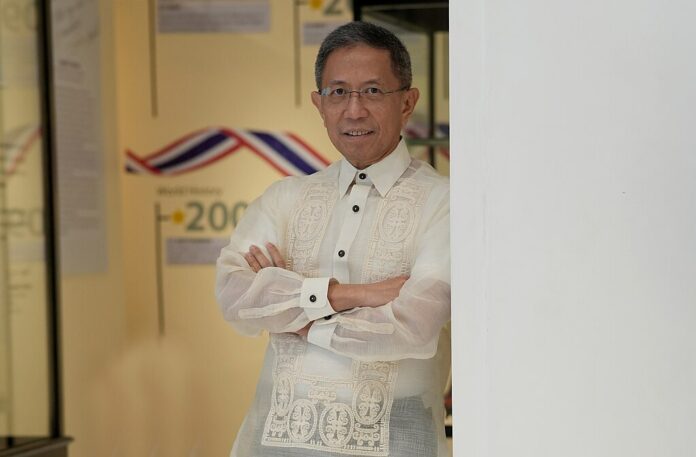The latest report from the PIF highlights a significant boost in Saudi Arabia’s green investment, funding 91 projects focused on renewable energy, clean transportation, and green buildings
Saudi Arabia Public Investment Fund (PIF) has significantly ramped up its green investment, surpassing $19.4 billion across 91 initiatives. These efforts aim to drive sustainability and enhance the Kingdom’s renewable energy and clean transportation infrastructure, marking a crucial chapter in Saudi Arabia’s quest to reshape its future through green finance.
In its second Allocation and Impact Report, released as of June 30, 2024, the PIF offered updates on the allocation and environmental impact of its green bonds issued in 2022 and 2023, which together amount to $8.5 billion. The report highlights that the fund has currently identified over $19.4 billion in capital expenditure for eligible green projects.
The portfolio includes a diverse range of sustainable developments, from renewable energy and energy-efficient infrastructure to sustainable water management and pollution prevention. A total of 18 operational projects fall under these categories, while the remaining 73 are still under construction.
Embed from Getty ImagesAmong the completed and ongoing projects, the green building sector has received particular focus, with $6.3 billion earmarked for three major projects. The PIF has committed $372 million to eight green building projects currently operational. The investment ensures that new commercial or residential structures meet third-party certified green building standards, aligning with the fund’s Green Finance Framework.
One of the most prominent examples of these green projects is Red Sea Global (RSG), a tourism development owned by the PIF. Known for its ambitious focus on regenerative tourism, the project spans 32,000 square kilometres and includes the Red Sea and AMAALA projects. These destinations will eventually offer 11,000 keys across 80 hotels, alongside residential and hospitality assets, all designed with sustainability at their core.
The PIF has already allocated $1.7 billion of green financing to the Red Sea and AMAALA as of mid-2024. These investments fall under the Green Buildings category of the PIF’s Green Finance Framework. The framework, published in 2022, serves as the basis for issuing green bonds, sukuk, and other forms of debt instruments aimed at promoting sustainable development.
As of now, nine green buildings are fully operational within the Red Sea and AMAALA projects, including four hotels, four residential clusters, and one management office. These buildings, designed to consume 20% less energy than conventional structures, save an estimated 18,000 MWh annually. Additionally, these assets are entirely solar-powered and independent of the national grid, resulting in the avoidance of approximately 36,000 tonnes of CO2 emissions annually. Once all the buildings are completed, total avoided emissions are expected to surpass 600,000 tonnes of CO2 per year, demonstrating the scale and environmental impact of the PIF’s commitment.
Water management is another critical area within the PIF’s green portfolio. One standout initiative is the NEOM Water Distribution project, for which the PIF has fully funded the region’s water transmission and distribution pipelines. Over $1 billion has been allocated to support nine water transmission projects across the NEOM region, with several components already in operation. This includes a 12-bay tanker filling station capable of supplying 18,000 cubic metres of potable water per day, as well as a 30-kilometre section of distribution pipeline.
The PIF’s sustainable water management initiatives aim to enhance water-use efficiency across the Kingdom, a crucial concern for Saudi Arabia given its arid climate and the rising threat of water scarcity. When completed, these projects will include over 500 kilometres of water transmission pipelines and multiple filling stations, significantly bolstering the country’s water resilience and addressing future water scarcity risks.
Beyond infrastructure, PIF’s investments are also helping to develop renewable hydrogen and biofuel sectors, further diversifying Saudi Arabia’s green energy landscape. By leveraging its expertise in oil and gas, the Kingdom is now turning its attention towards renewable hydrogen, a clean energy source with substantial potential. Meanwhile, Saudi Arabia’s refining capabilities are also being harnessed to explore biofuels, utilising the Kingdom’s agricultural resources to produce sustainable aviation fuel.
The PIF’s green bond proceeds serve as a powerful engine for financing these transformative projects, with an emphasis on sustainability, efficiency, and innovation. As Saudi Arabia continues its push towards its Vision 2030 goals, the PIF’s growing portfolio of green investments plays a key role in reshaping the Kingdom’s economic and environmental future. By embracing renewable energy, water conservation, and climate-conscious infrastructure, Saudi Arabia is demonstrating its commitment to a sustainable and prosperous future for both the nation and the planet.
